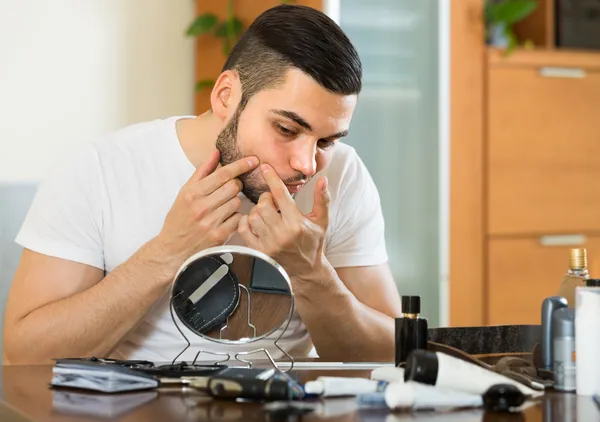Your children will start going through some major changes as early as age 8 or 9 (girls have historically started developing earlier than boys, although it can vary by person). Puberty affects girls and boys differently, so it’s important to be ready if you have both.
The term “puberty” really means your children are reaching the age of reproductive abilities, but that definitely doesn’t mean they’re ready for reproduction. Getting your kids to open up about how they feel during this time can help them through a challenging and sometimes awkward stage, as they struggle to keep up with their own development. Here are seven things to know that could help…
1. There’s a Predictable Pattern
The physical stages of puberty are quite predictable for both girls and boys, according to MedicineNet.com. For girls, that means the first signs are usually breast development, which usually begins around age 11. Public hair tends to grow next, followed by hair in armpits. Menstruation usually begins more than 2.5-years beyond when puberty began, it adds.
For boys, the first signs are an increase in penis and testicle size (the latter develops first, around age 11). These changes usually occur before pubic hair shows up, adds the source. After hair appears in the armpits, boys will experience a deepening of their voice and increased muscle mass. Facial hair usually comes last.
2. Changes Aren’t Just Physical
There are many emotional changes that happen during puberty as well, according to Menstrupedia.com (aimed at girls for healthy periods). One of these changes is becoming “overly sensitive” about your physical changes. You may have less patience or feel depressed, adds the source.
Puberty is sort of a bridge between childhood and adulthood and some kids feel lost, adds the site. This could lead to young people searching for their identity and breaking away from the family to spend more time with friends. You may also have worries about what this new stage of life entails, especially when those around you start treating your differently or expecting more from you.
3. Intimate Thoughts are Normal
Your child may become curious about sex during this transition, which is a normal part of growing up and not a cause for alarm, notes Avert.org. “Some people find that they start becoming attracted to people of the same sex, the opposite sex, or both during puberty. Others may not be attracted to anyone,” it adds.
However, with access to the internet and other media (magazines and television), as a parent you may want to educate your child about safe surfing and what is appropriate for them. The topic of consent may also come up, and that’s a subject that can be broached long before puberty.
4. The Cracking Voice is a Thing
There are often fun-loving jokes made about adolescent boys who go through a period of voice adjustment that sometimes results in high-pitched sounds. While this can be embarrassing to an already awkward boy, it’ll pass fairly quickly.
WebMD explains that hormones called androgens are responsible for male characteristics, and they also increase the size of a boy’s larynx (voicebox), causing it to thicken. Once this process is done, a boy will permanently have a lower voice that (hopefully) doesn’t crack too often. Sources note girls can experience this “cracking” too, but it’s a lot less obvious (some girls discover this issue when singing).
5. Early Puberty Can Signal a Problem
KidsHealth.org explains that there are some cases when a 5-year-old can start showing signs of puberty – this is referred to in the medical community as precocious puberty. This is not only a bigger challenge for kids and parents; it can also be the sign of an underlying health issue.
For girls, signs of precocious puberty include early breast development, pubic hair growth, acne, and even the start of menstruation. For boys, it can mean testicle/penis enlargement, signs of facial hair, deepening voice and a rapid increase in height. Kids experiencing precocious puberty may not reach their full height potential (because growth ends earlier), and it could present social barriers. Premature puberty can point to (in limited cases) head trauma, a brain tumor, meningitis, or a thyroid gland disorder, adds the source.
6. Girls are Starting Puberty Earlier
Speaking of early puberty, ScienceAlert.com posted an article in 2016 that explains girls in particular are starting the process “earlier than ever,” and there are long-term health risks involved.
The article notes the average age for a girl to begin puberty in the developed world is now age 10, which is apparently about 5-years younger than girls hit puberty a century ago. There are some theories for this – the article says researchers think earlier puberty could be tied to obesity that triggers early periods, or an increase in exposure to “hormone-disrupting” chemicals. In any case, early puberty can increase depression risk in teen girls, as well as higher risk of breast cancer and heart disease later in life, it adds.
7. Nutrition is Key
Puberty is a time when the body “has shifted into high gear” and is working hard to accommodate all the physical changes moving towards physical maturity, notes WholeFamily.com. That’s why it’s important to eat the right foods – and a lot of them (you may find your fridge empty often during the puberty years) – to stay healthy, as well as incorporating moderate exercise to keep a changing body in shape.
The same source says the eating habits developed early on can account for some “adult health concerns,” including high blood pressure and high cholesterol. These problems “find their roots in the early teen years,” which is another reason to teach healthy habits and limit fatty and sugary foods, it adds.










